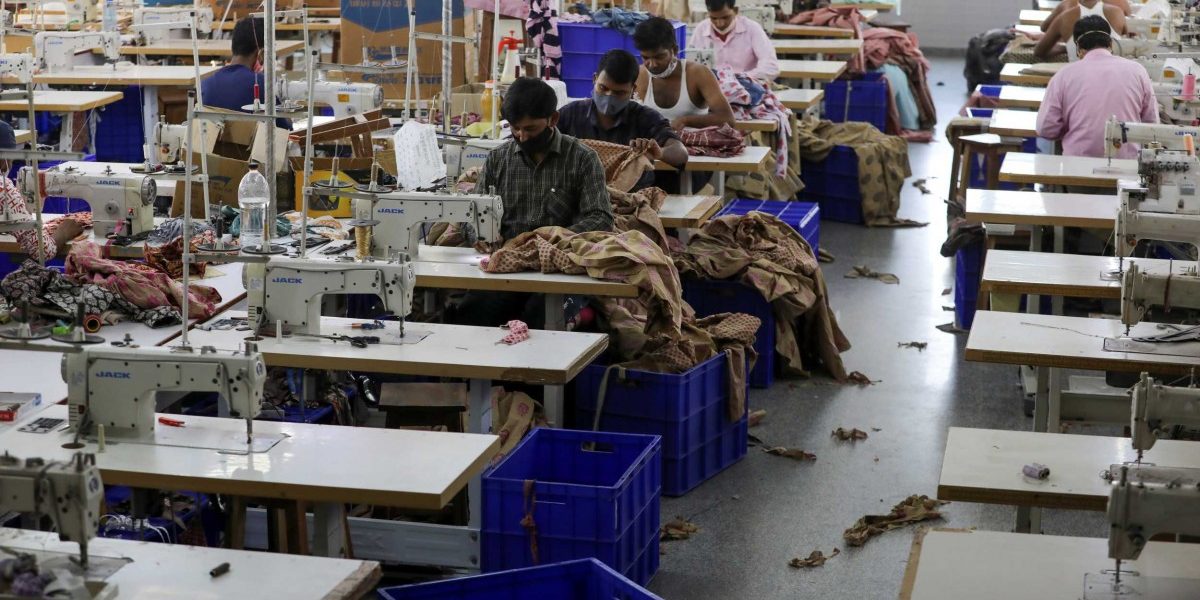New Delhi: In 2020, when COVID-19 halted trade and ravaged businesses across the country, as many as 11,716 businesspersons died by suicide, a 29% jump from 2019 when 9,052 businesspersons had taken their own lives, found latest data from the National Crime Records Bureau (NCRB).
The latest ‘Accidental Deaths and Suicides in India’ report said that of these over 11,000 deaths, suicides among “tradesmen” increased by 50% – from 2,906 in 2019 to 4,356 in 2020 – the highest across categories of business community. As many as 4,226 “vendors” died by suicide last year, with the rest being accounted for in the category of “other businesses”.
Karnataka recorded the maximum number (1,772) of deaths by suicides of businesspersons in 2020 – a 103% increase from 2019, when 875 businesspersons had taken their own lives in the state.
As many as 1,610 businesspersons died by suicide in Maharashtra, a 25% jump from the previous year, and 1,447 died in Tamil Nadu, a 36% jump from 2019. (Maharashtra has the highest number of MSMEs in the country with 28.38 lakh MSMEs registered, followed by Tamil Nadu with 15.4 lakh MSMEs.)
“The major share of India’s businessperson community belongs to the micro small and medium enterprises (MSMEs) who are extremely vulnerable to shocks and COVID-19 has hurt them the most,” professor Praveen Jha of JNU’s Centre for Economic Studies and Planning told The Print. “These small businessmen are not assured of support during the crisis and the government of India helped them with too little, and too late — that too mostly monetary in nature (in the form of loans) and not fiscal support (stimulus cheques),” he further said.
Arun Kumar, economist and professor at the Institute of Social Sciences in Delhi, told The Print, “When people stopped going to shops and markets and ordered everything online , it hurt the local shopkeepers… Most of these micro entities work on a very tiny capital; so, if they run out of work for a long duration, they are out of money very soon. Not earning money at all but still having to take care of the families pushes them to depression.”
The impact of COVID-19 in MSMEs
An EY survey amongst 1,000 MSME entrepreneurs highlighted that more than 70% of the respondents were impacted during COVID-19 because of reduced orders, loss in business, availability of raw material, and liquidity issues, the Economic Times had reported. In India, MSMEs account for about 99% of all enterprises, comprising 63 million MSMEs across various industries.
These small firms contribute 29% of India’s gross domestic product (GDP) and comprise almost half of its exports.
The Union government had announced measures aimed at solving liquidity concerns faced by MSMEs due to the COVID-19-induced lockdown. The Reserve Bank of India (RBI) had also announced a slew of measures to provide liquidity and support to MSMEs and small businesses, reeling under an acute cash crunch due to the pandemic. However, a parliamentary panel report in July noted that MSMEs need more support and the stimulus provided by the government is “inadequate”, the Indian Express reported.
The committee, chaired by Rajya Sabha MP K. Keshava Rao, said that the Union government did not conduct any study to ascertain the extent of losses suffered by MSMEs due to the nationwide lockdown imposed by the government. It also called for a detailed examination of the issue.The Print reported that in 2018, two years after demonetisation and a year after the implementation of the goods and services tax (GST), deaths by suicide of businesspersons rose by 3%, and in 2019, it grew by 13%.
































